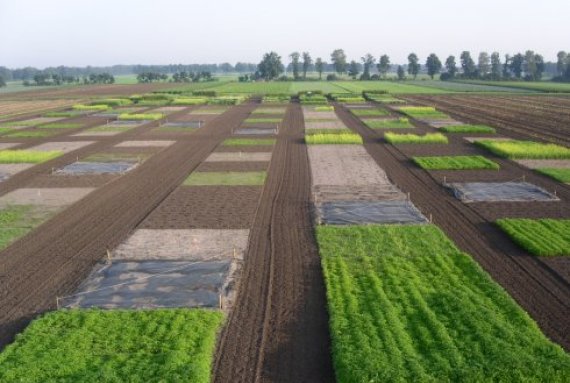<Photo: WUR>
Until several years ago, all Dutch arable crops farmers were obligated to hand over a part of their income to the Productschap Akkerbouw (Arable Crops Marketing Board), which spent that money on promotion and research. However, the House of Representatives disbanded all marketing boards – including those for horticulture and cattle. The parliament was of the opinion that farmers should willingly choose for research.
But there are matters in agriculture that transcend companies and that require multiannual research, such as research into healthy soils, plant health and biological crop protection. That is why farmers have founded an interbranch organisation that wants to organise this joint research. The organisation wants to inquire with all farmers whether they would want to invest in research. If a large majority answers ‘yes’, the government could declare the levy universally applicable in order to have all farmers contribute. The Interbranch Organisation Arable Crops has already received this declaration, but they are unable to collect money.
Combine
The arable crops organisation wants to combine the research levy with the annual ‘combined declaration’ of the Netherlands Enterprise Agency, with which arable crops farmers submit company details and pay a different amount. But Minister of Economic Affairs Kamp does not agree with the idea. He suggests that the interbranch organisation arrange the collections of the levy and of the details required for the collection by itself. The organisation thinks this is unnecessarily expensive and complicated.
Rather annoying
Ernst van den Ende, Managing Director of the Plant Sciences Group at WUR, thinks that the situation that has arisen is ‘rather annoying’. He wants to do research for the arable crops sector. ‘And the only way to perform long-term soil research for the sector is through jointly financed research. You can’t visit individual farms with a collecting box for research questions that transcend companies; that is something you should arrange together.’
Collective
WUR plays no part in the negotiations between the Ministry of Economic Affairs and the agricultural organisations, says Van den Ende. ‘But this situation is also bothersome for us, as there is now less money available for precompetitive research in various sectors.’ Van den Ende is also on the Board of the Top Sector Horticulture & Starting Materials, but that sector also has very little influence. ‘We need collective arrangements to finance soil research in the top sector, for example.’ The same problem is also present in the pig farming sector, where the Producenten Organisatie Varkenshouderij (Dutch Producer Organisation of Pig Farmers) can’t seem to be able to collectively collect research money.
The agricultural organisations are cross with the minister. If the ministry will not offer a pragmatic solution for the collection of research money, the interbranch organisation is threatening to discontinue their research programme and cooperation with the top sectors agenda.

